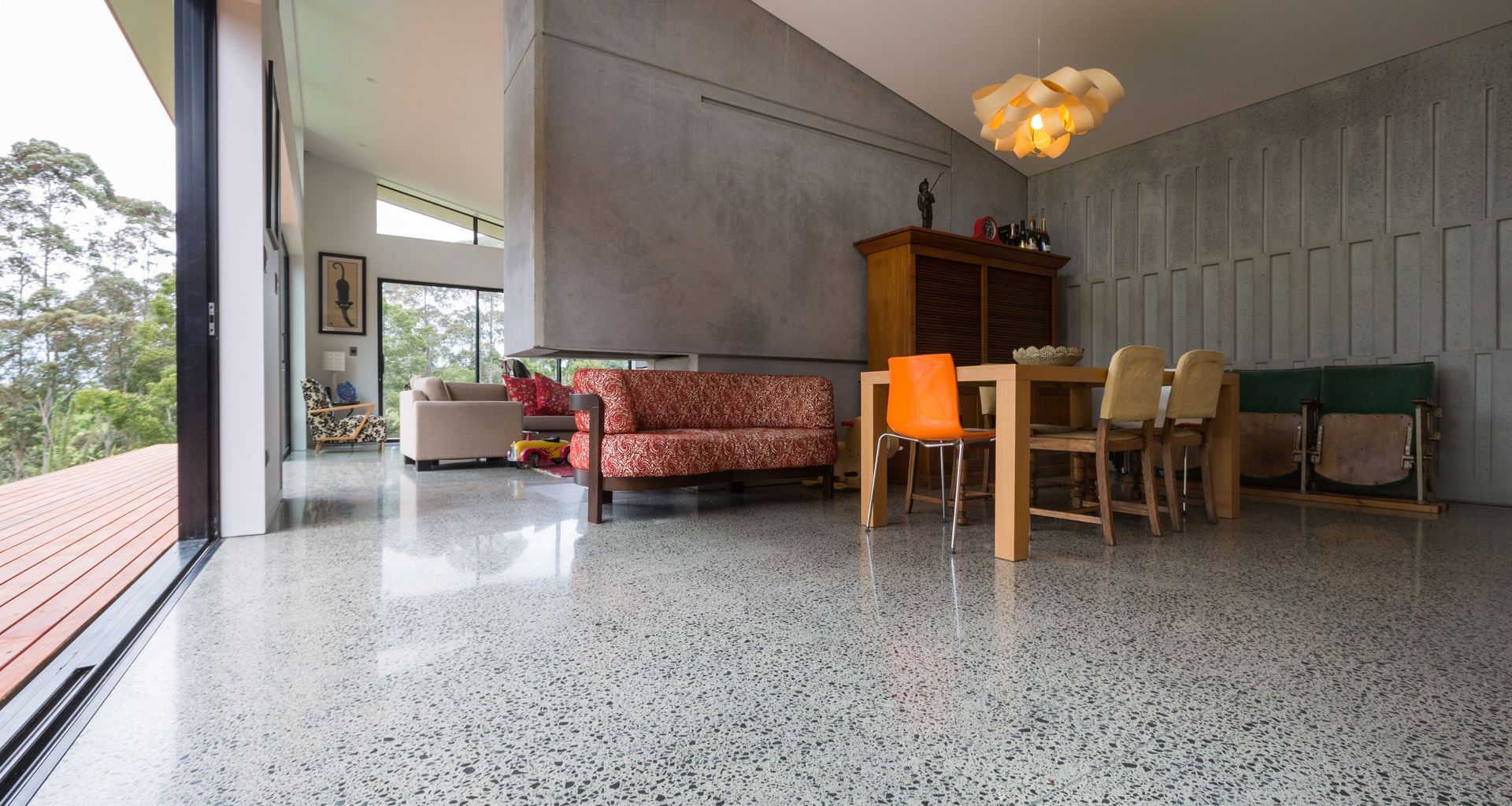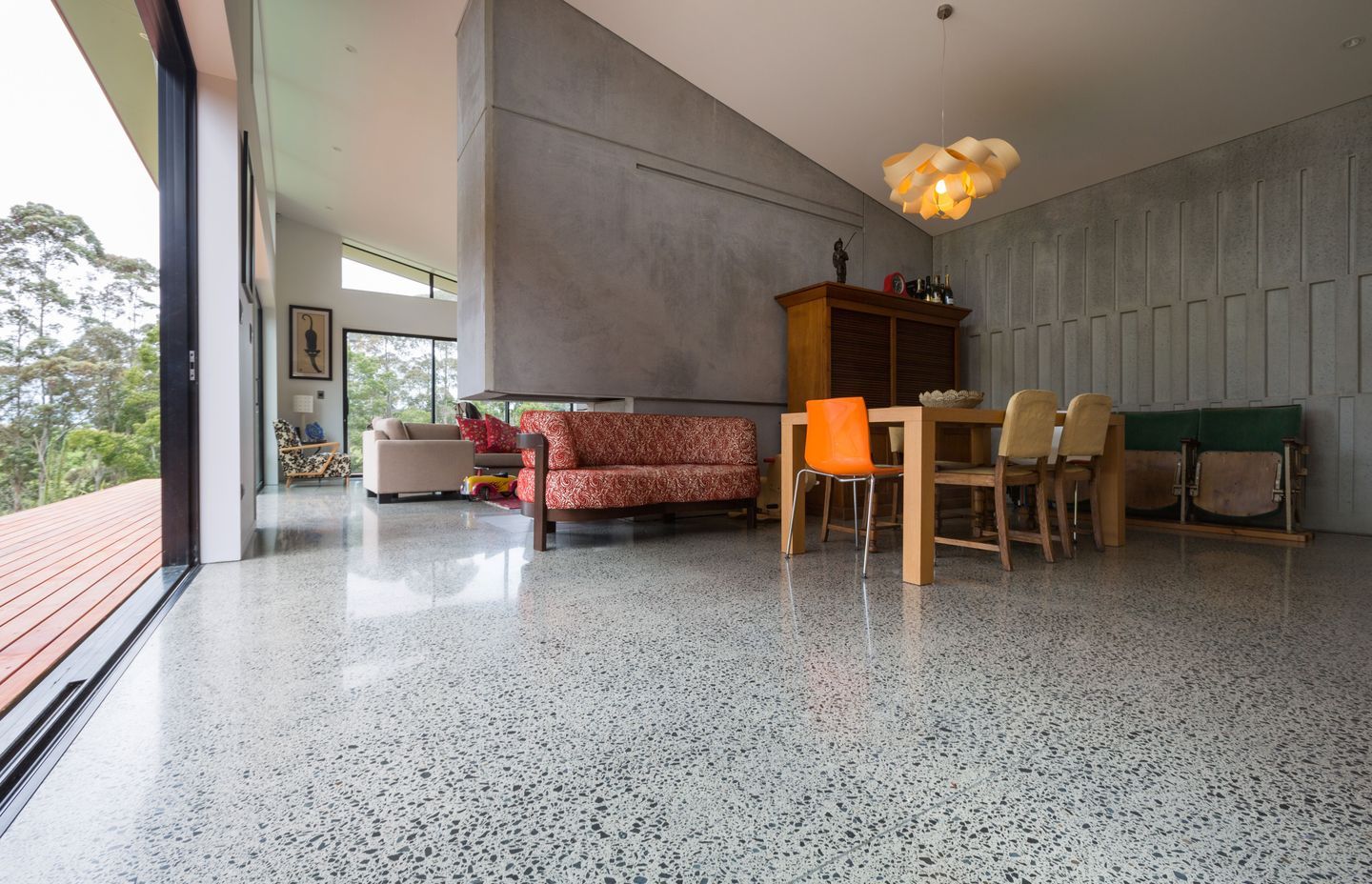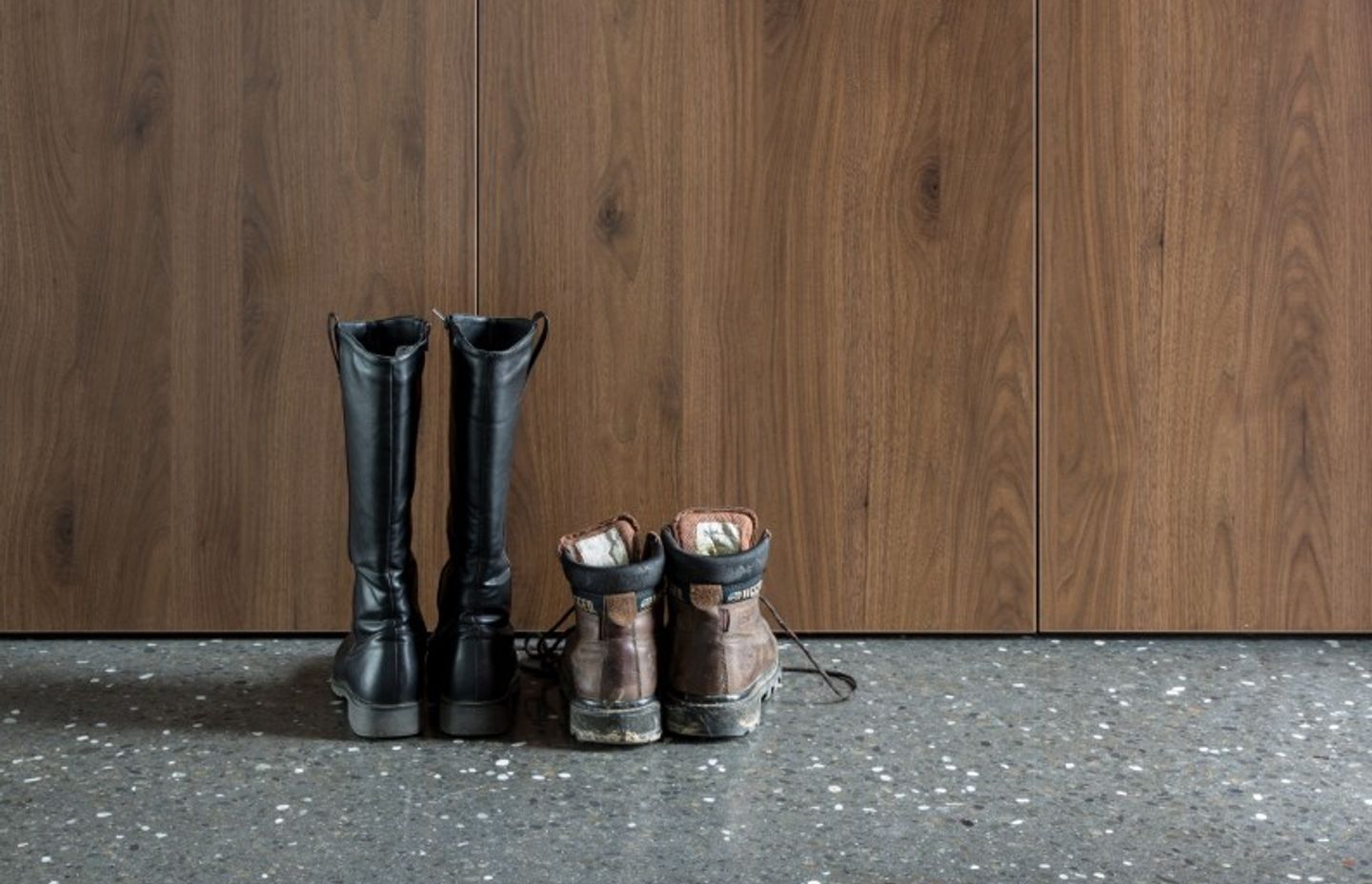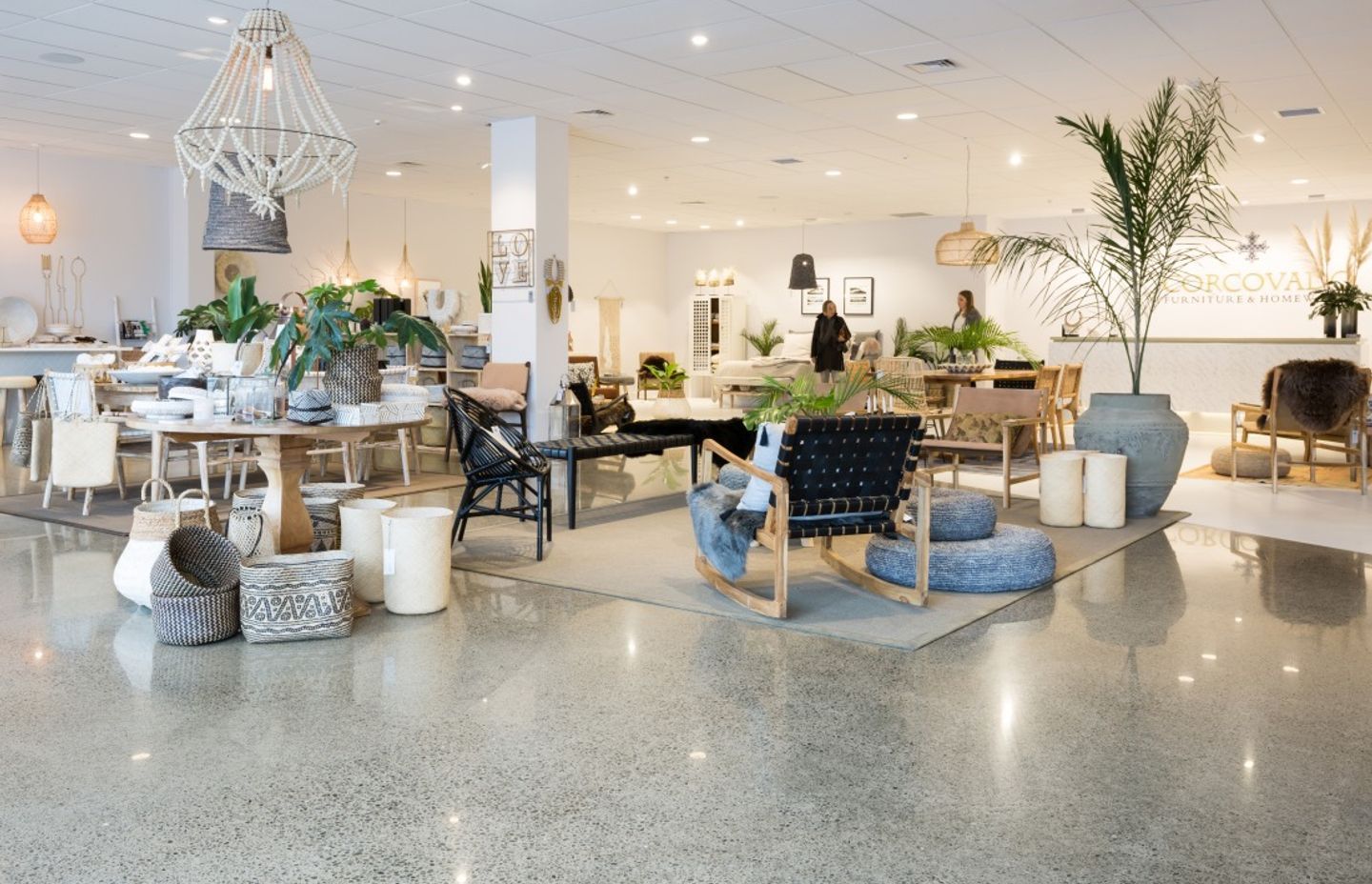Diamond polish: creating the perfect concrete floor
Written by
31 May 2017
•
3 min read

If it has been decided that a concrete floor will form part of a project, the design possibilities are virtually unlimited, and they begin from the very start of the process. The first things to consider are the types of aggregates, colour options, and whether or not the addition of glass or stones is required to make more of a design statement.
“These decisions early on in the piece will have a dramatic effect on the finished floor,” MegaFloor’s Stu Hunter says. “For us, concrete floors are about the refinement of raw natural elements and unlocking the beauty of regional aggregates.”
Choosing aggregates and whether or not to add features or colour to the floor paves the way to making other design decisions later in the process, including the type of finish the floor will have.
Finishes vary greatly depending on the type of aesthetic desired and can range from a deep grind exposing the local aggregate to the more basic warehouse polish and everything in between.
While the finishes and design statements that can be made with concrete flooring, the product has a multitude of other benefits too. “Concrete floors are particularly popular because of their thermal qualities,” Stu says. “A concrete floor is essentially a large thermal mass that charges passively with the sunlight assisting with the retention of ambient temperatures inside the home.”
Aside from concrete’s thermal properties though, the benefits – particularly in residential settings – are wide-ranging. “Polished concrete floors have high reflectivity which means they will capture and add to a room’s light, airy feel,” Stu says.
Concrete is also one of the most durable and hardwearing flooring options and requires little maintenance over its lifetime. As opposed to carpet and other floor coverings, concrete doesn’t hold any allergens and so is much easier to clean – all that’s needed is a static mop to remove any dust sitting on its surface followed by a standard mop with a neutral cleaner. “This is a benefit of polished concrete floors that often appeal to specifiers who are designing retail and commercial settings, and larger industrial areas,” Stu says. “It’s easy to maintain, but it’s also a cost effective option for much larger spaces rather than fixing floor coverings.”
In residential settings polished concrete floors remain a high-end option. But, Stu says, that doesn’t necessarily need to be the case, particularly in new builds. The majority of houses have a concrete sub floor anyway so the concrete is already factored into the build price and for only a fractional extra cost, that concrete can be polished into a feature floor.”
MegaFloor operates nationwide with all its installers being put through a stringent training course to ensure the highest quality outcome on every job. “If you order a MegaFloor in Invercargill or Northland, the quality will be the same because every installer has completed our intensive training course,” Stu says.
Get in touch with MegaFloor on ArchiPro here to find out what you can achieve with a diamond polished concrete floor finish, or a specification through Masterspec to a project you may be designing.


